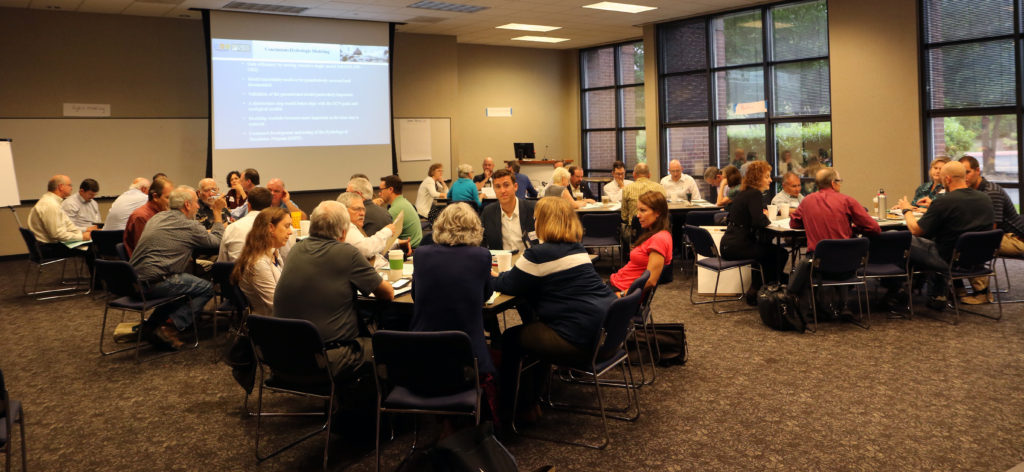Stakeholder Collaboration
 What do we mean by stakeholder collaboration?
What do we mean by stakeholder collaboration?
Generally, a stakeholder is a person who is interested and can be affected by the issues to be addressed. Organizations that we serve — governmental and non-profit entities — at times bring stakeholders together to engage and collaborate. The type of engagement differs depending on what the entity seeks from its stakeholders. Below are a few examples of types of stakeholder processes. We can help you determine which process would best fit your situation.
Information Exchange
Focuses on an exchange of information to promote understanding or test reactions.
- For example: a city holds a series of information sharing meetings to inform residents about the proposed expansion of a light rail system. These meetings would usually include a Q&A period, and might be designed to obtain information about what residents value or need from the rail system.
Policy Dialogue
Engages stakeholders in discussion about the issues that might result in jointly developed options on how to address them.
- For example: a county sponsors a stakeholder meeting to develop options regarding affordable housing.
Consensus-Building
Allows stakeholders to work together and reach agreement on recommendations or a final decision. Depending on the complexity of the issues, some consensus processes may occur over one or two meetings. Others may span several weeks or months, especially when extensive integration of technical or scientific information is needed to inform policy choices.
- For example: an environmental agency sponsors stakeholder meetings to develop recommendations on managing water flows for all downstream users.
Negotiated Rulemaking
This is a particular type of consensus-building process that allows agencies to draft a proposed rule with an identified and committed group of stakeholders. As outlined in Chapter 2008 of the Texas Government Code, this process starts with a Convener identifying the interests that will be affected by the proposed rule and the parties that can represent these interests. Then, the agency appoints the representatives, including the state agency in charge of implementation, who will engage in negotiations and seek consensus on a proposed rule. A facilitator works with the parties to address and resolve the issues relevant to the rule. If the parties reach consensus on the proposed rule, then the agency publishes that draft as its proposed rule in the Texas Register. The regular public comment period still applies.
Contact us about facilitation services for engaging stakeholders.
